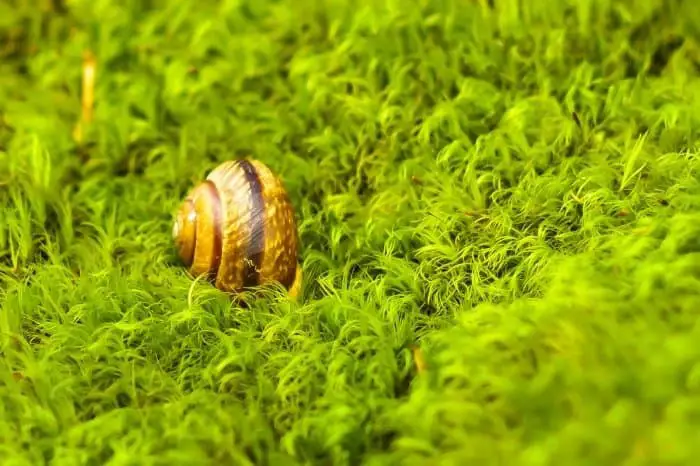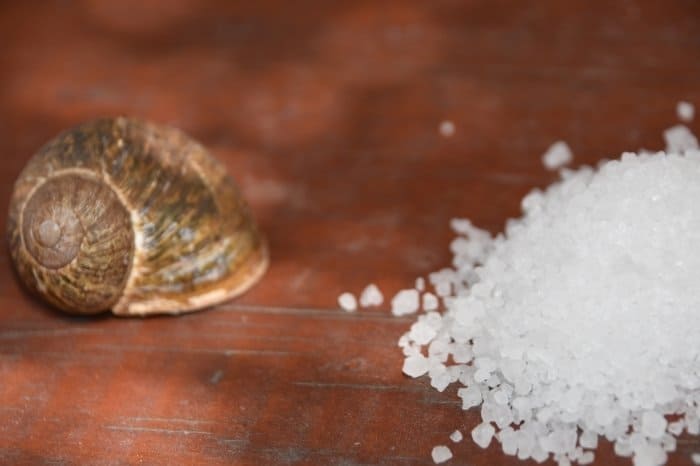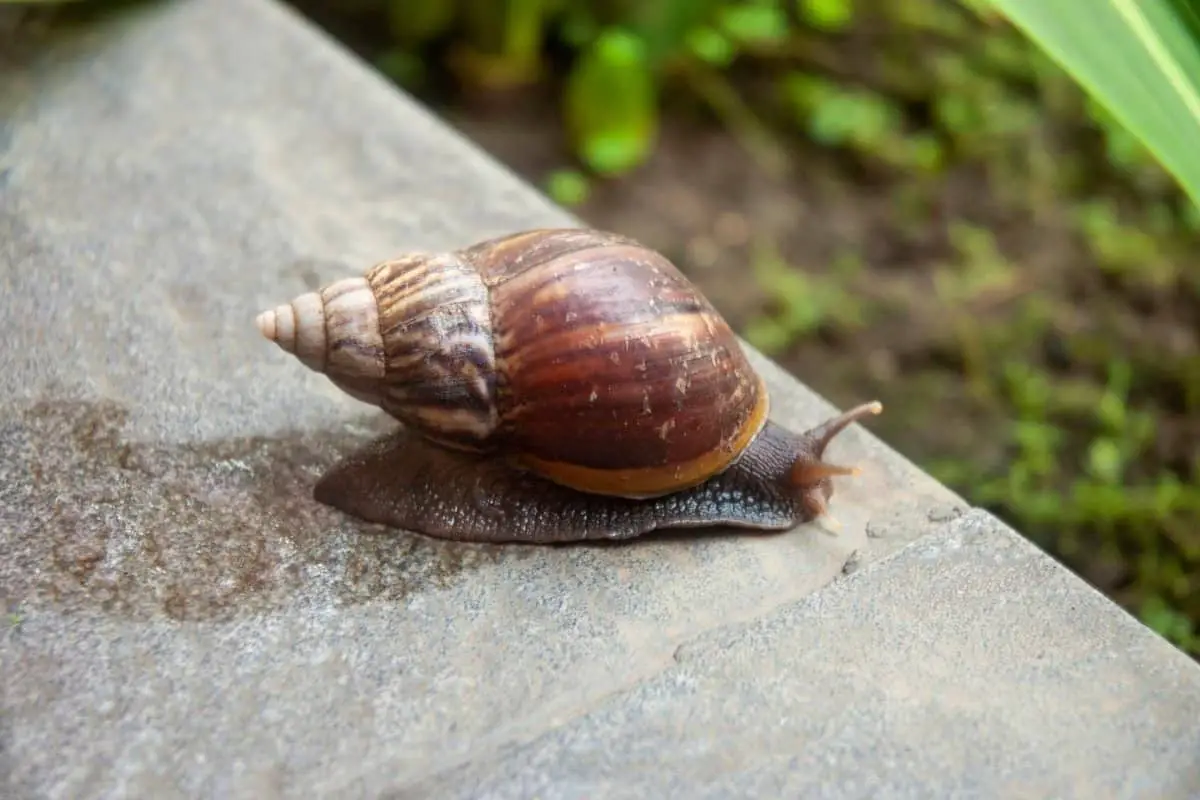Last Updated on October 8, 2021 by Cristina
Yuck! Why do I have slugs in my house? I mean not just one but a good number of them that seem to spread out everywhere in my house.
It’s one thing to fight off slugs from your garden, but it’s overwhelmingly yucking to step on them on your floor. How can I stop slugs from coming into my house? How can I get rid of the ones already indoors?
If you face this dilemma, it’s time to learn a little more about these slugs that confidently take space in your home.
Which Slugs Are Likely To Come Into Your House?
The slug that loves to come indoors is the ‘Limacus Flavus‘, the yellow cellar slug, a medium-sized slug measuring 13cm long. It is slender with pale mottling on a tan or a yellow, green body.
Slugs do not have bones; that makes it easy for them to slip through even the tiniest of holes in your doors or windows.

Why Do Slugs Come Into The House?
Slugs come indoors looking for something they need. If they need warmth or shade, they will look for it in your home. Knowing what attracts them to your house will help keep them away. For example, the yellow cellar slug loves to eat algae and mould but can also be found eating pet food, leftovers, and compost.
This slug is attracted to dark, damp areas like vents and drains. This creature comes in at night because it is strictly nocturnal, which means you will only see their mucous trail in the morning but not see them.
Slugs commonly infest old houses because they are likely to be cool and moist. If you have a damp problem in your house, you should quickly sort it out to avoid slugs becoming your unwanted guests.
Pet food is another reason why slugs visit your hose. Slugs have an excellent sense of smells that will lead them to your pet’s food or some plants that you are growing in your living room.
When the weather is hot outside, in most cases, slugs are looking to be cooled, and your house could come in the way of their search.
Remember, slugs don’t have bones and can stretch as long as 20 times their normal length to enable them to squeeze through the tiniest spaces in your house.
How To Stop These Creatures From Accessing Your Home
There are several ways to stop these annoying creatures from visiting your house each night. They include
If you find a slimy slug trail, use a torch to highlight its path to track the entrance point to your house. For all external doors, block the gaps that the slugs use as entrance points with a draught excluder.
Garden Safe 4536 Slug & Snail Bait (HG-4536) (2 lb), Case Pack of 1
For any larger gaps and cracks, use permanent foam filler to fill them and block them permanently.
How To Get Rid Of Slugs In The House
Now that you have blocked all the cracks and openings slugs use to access your house, the next is to learn how to get rid of them.
Seal All The Windows And Doors
Survey all your windows and doors in your house to check for holes, cracks, or loose areas that slugs can crawl through and seal them with suitable material.
Use Copper Tape
Copper tape is well known to prevent slugs from reaching your plants in gardens and pots. It can also be used indoors by laying it at the door or windows or around flowerpots or pet food. The texture of this tape creates an electric charge kind of effect that deters the slugs but does not harm them.
Use Salt
If you find several slugs in your kitchen or bathroom, pour salt on them; however, it will kill them. Don’t use salt on your indoor plants, as it can kill them.
Use A Slug Trap
Slug traps are best because they lure these creatures diverting them from their target. Use beer or sugary liquid solutions, and once inside, the slugs will find it hard to navigate their way out. This is a humane way to get rid of slugs in the house. Empty your traps each time you catch a few slugs away from your house, so they don’t find their way back. You can also make a beer trap by filling a container half full with beer and leaving it near where you dump them.
Read more about How To Get Rid Of Earwig Bugs
Wood Pellets
Wood pellets are a great organic way to deter slugs in the garden, and they can be used to block entry points to the house. Wool is a soft natural material that will not harm the slugs, and it breaks down naturally.
Put Up Bird Feeders And Other Natural Predators Homes
Encourage and have attract birds into your home and garden to eat up all those slugs as a natural repellant. This is a better method since it improves the biodiversity of your garden. With these birds around your home, it will be less likely to have slugs enter your house.
Install a hedgehog highway hole if you don’t have one and allow them to eat the slugs. Create a small pond for toads and frogs to help you eat up the slugs before they get to your house.
You can also keep ducks as they will keep the slugs out of your garden and house. Natural predators are the best to use in eliminating slugs as they will catch even the ones you cannot see.
Use Silicone Dioxide
This substance is harmful and should be used with care. When you pour it on a slug, it draws out oils in the slugs, drying them out to death. It can be irritant to humans, so use it with caution to avoid breathing it in.

Spread Sharp Barriers On The Slugs Route
Slugs have soft bodies that cannot stand sharp objects, including eggshells. When you notice the shiny mucous left behind by the slug, spread sharp barrier using eggshells on its route to keep them away. An excellent natural barrier that is friendly and costs you nothing except the eggs.
Grow Slug Repellant Plants Near Your House
If all else fails, grow repellant plants around your home to keep the slugs away. Some of these plants include rosemary, anise, wormwood, rue, and fennel.
Conclusion On Why Do I Have Slugs
It’s clear why you have slugs in your home; they are just looking for comfort and food. No offense, but slugs are yucky; if you have stepped on one barefoot, then you know how bad it feels.
All the best in dealing with these unfriendly creatures.
Caroline is a gardener who loves to get down to the nitty–gritty of gardening. She proudly proclaims herself as a ‘dirt worshipper‘ and can often be found deep in the garden, covered in soil and singing to her plants. As a self–proclaimed ‘plant whisperer‘, Caroline believes that plants need love and attention just like any other living thing, and she loves to give them both. When she‘s not tending to her garden, you can often find her researching the latest gardening trends, or teaching others how to make their gardens thrive



